31 Mar, 2025 | Admin | No Comments
Every bill going up from April 1 — and how to save hundreds by haggling


Brits are being urged to check the terms of their phone and broadband contracts and ensure they’re not overpaying council tax with bills rising from April 1.
This year ‘Awful April’ looks likely to be particularly painful, with nine in 10 councils taking the opportunity to raise taxes by the maximum allowed amount, and water bills rising by as much as 47%.
Although you can’t escape all hikes, with the right know-how, you can potentially save hundreds of pounds.
Below, we talk you through how to hack household bills as businesses and councils put up their prices to compensate for inflation and rising costs.
1. Council tax
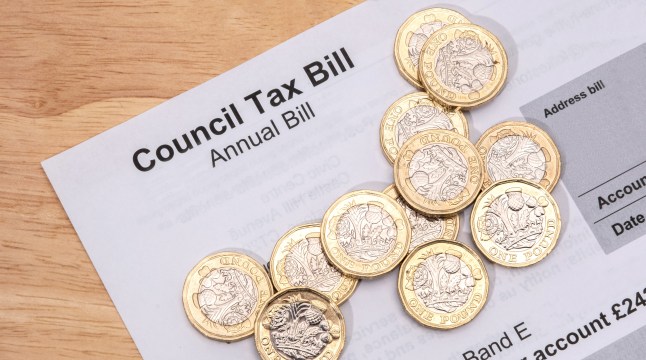
Most of us will pay 5% more on our council tax from April – that’s an average of about an extra £109 a year for a Band D household – but a few unlucky folk will find the bill is much higher.
That’s because their council has been given permission to raise even more from customers because they are in dire financial straits.
Councils that can do this include Bradford, which will put up council tax by 10%, and the London borough of Newham, whose residents will pay 9% more.
Is there anything I can do about it?
Check you are not overpaying. There are a few reasons why council tax might be reduced. Full-time students, single people, carers and those with certain diagnoses are entitled to a discount, as are some people on low incomes, so check your council website to see if you are eligible.
You may also be able to apply to reduce your council tax band. The amount you pay in tax depends on the valuation of your house in 1991, and many properties have changed since then. There are more details on how to challenge the banding at gov.uk, though be aware that it comes with the risk you’ll go up a band, too!
2. Energy bills
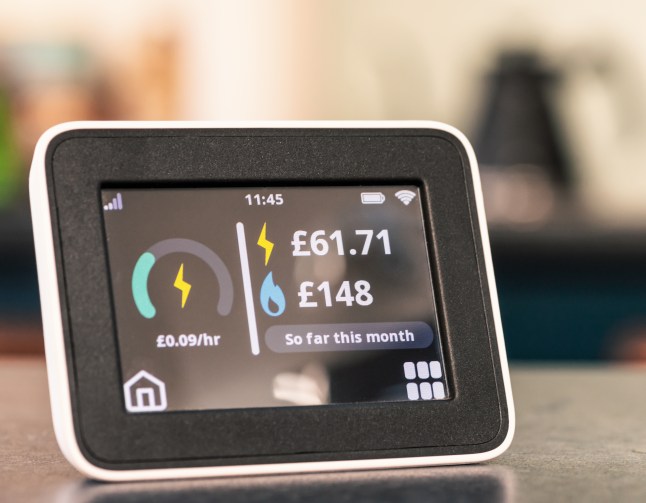
The government cap on energy prices rises from April 1 to 6.4%, so if you’re on a capped energy tariff, the gas and electricity you are using will cost more. Energy regulator Ofgem says this will cost the average household £111 a year if prices remain at the new level. The cap itself only runs for three months, after which prices may rise or fall again.
Is there anything I can do about it?
If you are on a fixed-rate tariff, you won’t pay any more for your energy until that rate comes to an end.
If you aren’t, and your energy is on a capped tariff, now might be a good time to see if you can save by switching. Use comparison sites such as Uswitch, Moneysupermarket or Comparethe market to find cheaper deals.
Taking steps to reduce your energy bills will also pay dividends, although the good news is that the latest hike is coming in as the weather gets warmer and energy demand reduces.
Fiona Peake, consumer finance expert at Ocean Finance, suggests the following tweaks to bring bills down further. ‘Leaving appliances on standby overnight can add up to £100 a year to your bills. Switching everything off at the socket (except essentials like your fridge) can be an easy way to save,’ she says. ‘Another simple fix is lowering your boiler’s flow temperature to 60C. It won’t impact the warmth of your home but it could save you another £100 a year.’
3. Water bills

Water bills alone are set to increase by an average of £123 a year from April 1, a 26% increase, according to the Consumer Council for Water (CCW), which represents householders. Depending on where you live, some people will face even bigger rises, as water companies are raising their bills by different amounts.
Some of the highest rises include Southern Water, which is increasing bills by 47%, South West Water (32%), Thames Water (31%) and Yorkshire Water (29%).
Is there anything I can do about it?
Andy White, from the CCW, says that customers who are finding water bills difficult to pay should check whether they are eligible for a ‘social tariff’.
If you are eligible because you have a low income, you could save an average of £160 a year, while those with medical conditions that mean they use a lot of water could be eligible for WaterSure tariffs, with an average saving of £286 a year. Two in five households in the UK don’t have a meter and some would be better off if they switched.
You can try the CCW water meter calculator at ccw.org.uk to see if that could be you. You can also, unless you live in an area where water meters are compulsory, switch back again after two years if you are unhappy with it.
‘I saved £175 by switching to a water meter’

Sylvia Tillmann, from Ramsgate in Kent, is saving over £175 a year now she’s switched her water to a meter. Her bill used to be £300 a year, and now it is just under £125.
The 58-year-old lives in a one-bedroom flat, but still saved on her Southern Water bill by switching to a meter.
‘I’m not wasteful, very environmentally conscious, and take short showers rather than long ones,’ she says. ‘I only use the washing machine and dishwasher when it’s really full, so the meter hasn’t changed my behaviour at all, just saved me money.’
Sylvia says that she was prompted to get a meter by a friend who had also saved money, and although she had to wait a while for an engineer to come and fit it, the process was otherwise straightforward.
‘To start with, I was checking the meter all the time to see if it moved, and it only moved a little bit with each shower or use of the dishwasher,’ she says. ‘I couldn’t believe my savings, and I’d advise anyone who is careful with water like me to do this.’
4. Broadband and mobile bills

Broadband and mobile phone companies are allowed to put up your bills by an amount linked to inflation if this was in your contract when you signed up. Fiona, at Ocean Finance, says this could push bills up by six to 7.5%, adding £3-£5 per month to household expenses.
Is there anything I can do about it?
If you are out of contract, you can leave and get a better deal, or haggle with your current provider for a cheaper price by threatening to leave. Check out comparison sites such as Uswitch or Moneysupermarket for deals that might work for you.
If you’re in contract, chances are you’ll have to pay to leave, but do check whether they will waive exit penalties when prices rise. If the penalties are steep, make a calendar note of when the contract ends and switch as quickly as you can.
How to haggle your phone or broadband bill
Metro’s money expert Andy Webb, who runs financial blog Be Clever With Your Cash, shares his top tips to haggle down your phone or broadband bill.
‘If you’re out of contract, or soon will be, then this is the time to either find a new provider that charges less or haggle a better deal,’ he says.
Andy advises playing hardball with your phone provider.
‘Just tell the person you want to leave, and make sure you’re put through to the disconnection team as they have the most power when cutting prices,’ he explains. ‘You can even call their bluff and trigger the cancellation. Often they’ll call back with an even better deal. If they don’t you can always say you’ve changed your mind and accept the previous offer.’
When it comes to broadband, if you’re in contract, there’s not much you can do but wait to find out the increase, says Andy – with a few exceptions.
‘First, if you’re a Sky broadband or O2 mobile customer, these two companies will be charging more from April 1, but there are loopholes that mean you can cancel your contract. With Sky phone and broadband, though sadly not TV, it’s because Sky doesn’t have this increase baked into the contracts, so it’s a change in the terms you agreed to,’ he explains.
‘The opportunity to end an O2 contract early hasn’t been widely publicised, though the email I received also talked about other contract changes, such as fair usage on worldwide roaming. Whatever the reason, it still offers the opportunity to quit.
‘But you need to act fast. You’ve got 30 days from them telling you of the changes to tell them you want to leave (or use it as a bargaining chip). Since you might have had the communication in early February, the clock could already be ticking.
‘Another option worth exploring to beat the increases is if your internet speed hasn’t been what’s promised, and they’ve not been able to fix it in 30 days, then you can also cancel your contracts early.’
5. Car tax

How much more will I pay?
For most of us, the increase in car tax will be a relatively manageable £5 a year, to £195. For those with electric vehicles though, the increase will be high. These vehicles have been exempt from the tax but now will pay £10 for the first year before moving to the standard car tax rate.
Is there anything I can do about it?
Expensive vehicles attract more car tax, so ensuring you don’t have a vehicle with a ‘list price’ of over £40,000 will save you money. Otherwise you only get out of paying car tax if your car is off-road and declared as such, or is over 40 years old.
6. TV Licence

How much more will I pay?
The price for a standard colour TV licence is rising by £5 to £174.50.
Is there anything I can do about it?
If you want to watch live TV or BBC iPlayer then you will need a licence. If you watch only other catch-up services, you won’t, and can save the full amount. You can apply to cancel your licence online if this is the case at tvlicensing.co.uk. You can also fill out a declaration on the same site saying you don’t need a licence, to prevent TV Licensing pursuing you for the cash.
Beware, though, if you don’t pay and are discovered to be watching live TV or iPlayer, you could face a £1,000 fine. Otherwise if you’re over 75 and receive the pension credit benefit you’ll get a free TV licence, while those who are blind or significantly sight-impaired will receive a 50% discount.
Average annual extra cost per household
Energy: £111
Council tax: £109
Water: £123
Broadband and mobile: £50.40
Car tax: £5
TV Licence: £5
TOTAL: £403.40
Source: Hargreaves Lansdown
Rosie Murray-West is Metro’s personal finance specialist.
If you want more tips and tricks on saving money, as well as chat about cash and alerts on deals and discounts, join our Facebook Group, Money Pot.
29 Mar, 2025 | Admin | No Comments
Up to 3,500,000 Brits could receive £40 compensation for ‘dumb’ smart meters


While smart meters are a handy way to save money on your energy bills, it turns out millions across Great Britain may not actually work.
According to official figures, there have been a number of issues with the nationwide smart meter rollout, with as many as 3.5 million currently operating in ‘dumb’ mode, unable to send energy usage information.
As such, Ofgem has called on providers to urgently fix broken devices, proposing they issue £40 automatic compensation to those who have to wait longer than 90 days.
Under the regulator’s plans, customers will also receive a payout if a smart meter installation fails due to a fault within their provider’s control.
Amid government targets for three-quarters of all homes to use one by the end of this year, Uswitch research shows up to 1.4 million households in England, Wales and Scotland have waited six months or longer for their broken meter to be fixed.
However, the new proposals mean anyone who requests a new meter from their supplier will have to be offered one within six weeks, while suppliers will be required to provide a resolution plan to those who report problems with their device within five working days.

Tim Jarvis, director general for markets at Ofgem, said: ‘We’re drawing the line on excuses – suppliers will need to follow our new rules or compensate their customers.
We know that many customers are still waiting too long to get a smart meter installed or facing lengthy delays on repairs when it stops working.
‘That’s why we’re stepping in to make the process quicker and easier for consumers and to make sure they’re fairly compensated if things do go wrong.’
What is smart meter 'dumb mode'
According to Smart Energy GB: ‘‘Dumb mode’ is sometimes used to describe when smart meters are not automatically sending meter readings…
‘If your smart meter is in “dumb mode” or isn’t sending regular meter readings, it will still be measuring your energy use, but it won’t send that information automatically to your energy supplier.
‘To get accurate bills, you will need to take manual readings and share them with your supplier. You will need to take regular readings until the issue is solved, and your smart meter can send readings automatically again.’
Martin Lewis discussed the topic on a recent episode of his podcast with Octopus Energy boss Greg Jackson, who claimed repairs were often not prioritised because fixing existing smart meters doesn’t count towards the targets.
The Money Saving Expert (MSE) founder previously warned ministers that up to 20% of home smart meters are not working properly, urging them to change the current rules.
In a letter to Energy Secretary Ed Miliband, he wrote: ‘Repairs are slow, if they happen at all, as resources are focused on installs, leaving consumers frustrated and at risk of mis-billing and further problems.’
Ofgem’s proposals are due to be consulted on until May, after which further details on the compensation scheme will likely be released.
Miatta Fahnbulleh, the UK Minister for Energy Consumers, commented: ‘We want to make sure more consumers feel the benefits of having one installed.
‘A crucial part of that will be improving the smart meter customer experience, so we welcome Ofgem’s proposals to introduce guaranteed standards of performance for smart meters.
‘This will help to ensure people who want to upgrade their meters are better supported through the process, and can make the most of their new smart meter.’
Do you have a story to share?
Get in touch by emailing MetroLifestyleTeam@Metro.co.uk.
26 Mar, 2025 | Admin | No Comments
Martin Lewis shares three-day warning to save £100s before energy price hike


According to Martin Lewis, 80% of households in England, Scotland and Wales currently overpay for energy — and in the coming months, it’s only going to get worse.
Ofgem just announced the price cap will be going up by 6.4% in April – following a 1% rise in January – with the energy regulator blaming an increase in the wholesale price of oil and gas.
That means the minimum bill for someone with typical dual-fuel use paying by Direct Debit will go up by over £100 a year, which Ofgem chief executive Jonathan Brearley will pose ‘a huge challenge for many households.’
But thankfully, there is a way to avoid the worst of the hike, with Martin claiming it could result in a typical annual saving of £200.
And the personal finance guru’s advice is simple: ‘Most people should consider locking in a cheap fix to avoid the hike.’
On the Money Saving Expert (MSE) newsletter, he explained that ‘a fixed tariff is where you lock in a rate for a set time (you still pay more if you use more, though), giving you the peace of mind of price certainty’.
Martin also added on X: ‘The cheapest year-long standalone fixes right now are about 4% less than the current cap, never mind once it rises in April.’

As many people are nervous about switching to a relatively unknown energy company for their price fix, Money Saving Expert has managed to wrangle an exclusive 16-month fix with British Gas, that’s available for new and existing customers.
However, it’s only available until 5pm on Friday, March 28. So you’ll want to act ‘urgently’ if you want to snap it up as there are just three days from now until then.
According to the experts, there’s only one smaller firm (Outfox the Market) that has a cheaper deal right now, and this is the ‘most competitive deal’ British Gas has offered in a while.
Martin says that in general the deal ‘looks strong’ but the exact fixed rate tariff that’s best for you will depend on your region and how much energy you use.
To find this out, you’ll want to put your details into a comparison tool (like MSE’s Cheap Energy Club) to see more personalised options.
Regardless of which deal you choose, the new price cap will come into play on April 1 and will last for three months, so you definitely have to switch before then.
However, Martin also warns that deals are being snapped up fast, so ‘getting it done ASAP is safest’ as ‘each day you sit on the Price Cap is a day you pay more than needed’.
Popular price capped tariffs
If you’re on one of the following, what you pay is determined by the price cap, which Martin says means you’re ‘likely overpaying and should sort now’.
- British Gas Standard Variable
- EDF Standard (Variable)
- E.on Next Next Flex
- Octopus Flexible Octopus
- Ovo Simpler Energy
- Scottish Power Standard
Alongside fixed rate tariffs, it’s worth looking into specialist alternatives that could save you cash.
EDF’s new Simply Tracker Extra tariff, for example, slashes £100 a year off the standing charge, and could be good for those with lower usage (roughly under £135 per month).
Alternatively, there are electric vehicle tariffs which could help EV drivers keep costs down, and rapid price-change options offering lower prices outside of peak periods for those who are able to shift their daily usage routine.
If you’re still struggling to pay, Martin recommends speaking to your energy provider to see how they can help.
‘Be polite and straight with it, and make sure you explain if you’re vulnerable,’ he says.
They may be able to put you forward for a hardship and debt grant, or work with you to negotiate a payment plan you can afford – everything’s decided on a case-by-case basis.
Under Ofgem rules, suppliers are obligated to help struggling customers, so get in touch with yours as soon as possible if you’re worried about your ability to pay.
How can I lower my energy bills?
Amy Knight, personal finance expert at the financial comparison website NerdWallet UK, told Metro: ‘While cutting down on energy use can help save money on bills, this isn’t always an option. Instead, focus on getting more value from the money you spend heating your home.’
Here are her top tips to keep fuel bills low this winter:
Ask for a refund if you’re overpaying into your energy bill by direct debit
If you’re several hundreds or even thousands in credit, your direct debit is probably set too high.
You can ask for a refund of most of the balance and adjust your direct debit to be lower. Be aware though, it is normal to be in credit this time of year because most households use less energy in the summer versus the winter when we have the heating on.
How hot do you need your water?
Heating water uses a lot of energy, so you can turn down the flow temperature of your boiler to shave a little off your bills.
As long as the water from your hot tap is comfortable to have a bath in, you don’t need to set it any hotter. You can do this manually or you may be able to ask a heating engineer to fit a device called a ‘weather compensator’.
Remember where warm air comes from
Keep radiators uncovered to maximise the benefit when they’re on. If you have long curtains covering your radiators, leave them open to make sure the warm air circulates into the room, not out of the window.
Look at the label
When shopping for a new appliance such as a washing machine or fridge, look at the efficiency ratings. If your budget can stretch to A or B-rated white goods, these can help lower your energy usage long term.
A version of this story was first published on February 25, 2025.
Do you have a story to share?
Get in touch by emailing MetroLifestyleTeam@Metro.co.uk.

An average family in Britain could be £1,400-a-year poorer by 2030, according to new analysis.
Frozen tax thresholds, rising mortgage and rent costs, and falling real earnings are all predicted to leave people worse off in the next five years.
The hardest blows will fall on the poorest third, who will bear the impact at twice the rate of middle and high earners, according to the analysis by thinktank The Joseph Rowntree Foundation (JRF).
The anti-poverty charity’s report predicts that the Labour government will miss one of its stated ‘milestones’ to raise living standards before the next election.
The £1,400 drop by April 2030 equates to a 3% fall in disposable income for the average family.
The lowest income households will be £900 per year worse off – a 6% fall, it said.
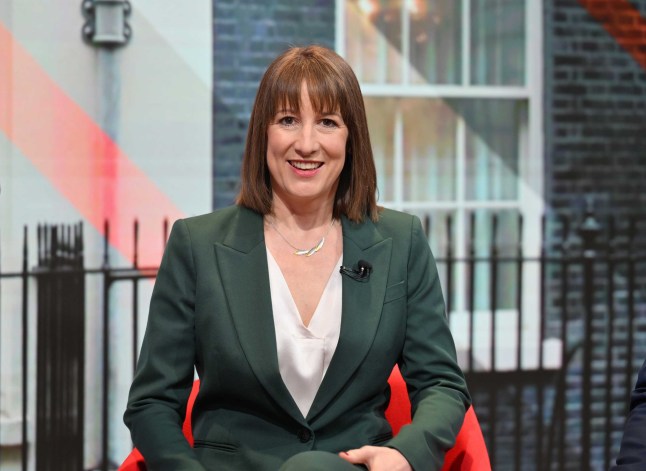
Average earnings are also set to fall by £700 per year by 2030, according to the JRF.
And the situation could be even worse for some as the analysis doesn’t account for the £5bn cut to disability benefits announced this week.
The charity used modelling forecasts from the Bank of England and others to create its prediction.
It also polled of 5,000 people with YouGov.
Alfie Stirling, its director of insight and policy, said Labour risks running the ‘first parliament on modern record to see a fall in average living standards from start to finish’.
It branded the welfare cuts ‘wrong’ and wants the plan scrapped.
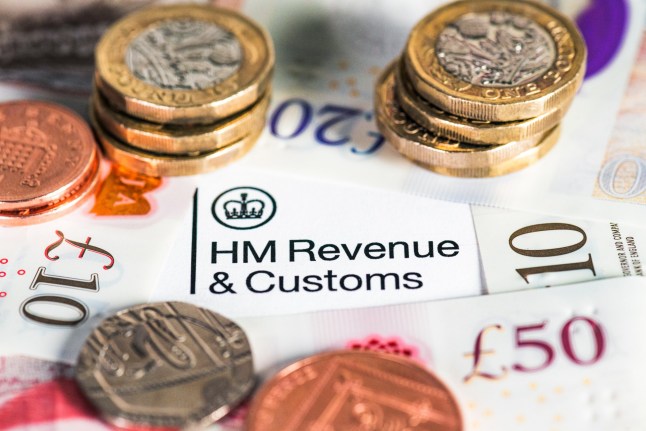
Instead the government should instead raise cash by increasing tax on wealth and investments, it said.
This is unlikely to happen after by chancellor Rachel Reeves ruled out any more tax rises earlier this week.
When asked about the foundation’s findings, Reeves rejected the claims that living standards are falling.
She claimed that living standards in the last Consversative-run parliament ‘were the worst ever on record’.
The analysis came shortly before the chanellor’s spring statement in which more cuts are set to be announced in a bid to improve the country’s finances.
Today Reeves said the Civil Service’s administrative running costs will be slashed by 15% as part of her efficiency drive.
Whether this helps drive economic growth – the government’s top priority – remains to be seen.
The Bank of England recently halved its growth outlook for the UK economy this year to 0.75% – pouring more water on hopes of the economy reigniting after years of tepid growth.
There are also worries next month’s hike to employer national insurance and the minimum wage will create further drag on investment.
Get in touch with our news team by emailing us at webnews@metro.co.uk.
For more stories like this, check our news page.
19 Mar, 2025 | Admin | No Comments
Martin Lewis issues 10-day warning to qualify for £100 Nationwide bonus payout


Last year, Nationwide paid 3.85 million members £100 each as part of its Fairer Share scheme — and it looks like the building society will be issuing a fresh round of bonuses in the next few months.
While the exact details of the 2025 initiative – which is separate to recent £50 payouts marking Nationwide’s acquisition of Virgin Money – have yet to be released, Martin Lewis has offered some urgent advice to help you qualify.
In the latest edition of his Money Saving Expert (MSE) newsletter, he shared a guide on possible conditions for the ‘reward’, urging: ‘Go quick to boost your chances.’
MSE explained: ‘In previous years, the scheme has been announced in May and paid in June, though whether you got it depended on if you met the qualifying criteria in the first three months of the year.’
That means existing members have just a few weeks left to ensure they fulfil any requirements, while non-nembers need to switch to Nationwide ASAP to be eligible.

Assuming the initiative comes with the same prerequisites as in 2023 and 2024, what you have to do will depend on the account you have and how you used it in January or February this year.
If you’re already a Nationwide customer, your account must still be open on March 31, 2025, so don’t close it between now and then. Additionally, you need to have used it within the first three months of the year, with slightly different criteria for different types of account:
FlexAccount, FlexBasic, FlexDirect accounts
To qualify for a Fairer Share payout, you must have either received £500 and made two payments out of your account, or made at least 10 outgoing payments in January and February this year.
However, MSE adds that if you didn’t do this, ‘you may still be able to qualify by switching.’
FlexPlus packaged accounts
No payments in or out are required here, but you need to have kept up with your fee to be eligible.
FlexOne, FlexGraduate, FlexStudent accounts
The deadline for these members is slightly later, so you’ll have until the end of March to qualify by making at least one payment in or out of your account.
‘Payments out can include debit card transactions, Direct Debits, bank transfers and standing orders but not transfers to other Nationwide accounts you have,’ explains the MSE site.
Mortgages and savings accounts
Mortgage customers must owe at least £100 by end of March, while savings accounts must have a balance of at least £100.
MSE advises: ‘If you don’t have either of those, stick £100 (or maybe £200 to be safe in case it changes its terms) into one of Nationwide’s savings accounts before Monday 31 March.’
Not with Nationwide or missed the deadline to qualify?
If you use the Current Account Switch Service to switch an account you hold with another bank to a Nationwide FlexDirect one by March 31, you may still meet the criteria for the £100 Fairer Share payment — and you may even be eligible for a £175 new customer bonus too.
Keep in mind though, there isn’t long left to act, as the process normally takes seven working days to go through.
Alongside switching your current account, MSE recommends you also ‘stick £100 (or £200 to be even safer) into a Nationwide savings account or owe at least £100 on a Nationwide mortgage in March 2025′ to maximise your chances of qualifying.

When will the Nationwide bonus be paid out?
Last time around, the bank contacted eligible members by May 31, with bonuses deposited into members’ accounts between June 13 and June 28.
Nationwide plans to release information such as the amount and exact payout dates around the same time in 2025, so there’s still a while to wait.
However, all the hard work’s done for you, so you don’t need to make a claim or request the money yourself.
If you think you qualify and haven’t heard anything from Nationwide by June, get in touch. And don’t forget to stay aware of fraudulent attempts at obtaining your personal information to apply for the payment.
Do you have a story to share?
Get in touch by emailing MetroLifestyleTeam@Metro.co.uk.
18 Mar, 2025 | Admin | No Comments
Aldi branded ‘top tier’ for offering free period products in UK supermarket first


You may notice something different about Aldi on your next visit, with a new change being praised for ‘setting an example’ by shoppers.
Today, the retailer became the first major UK supermarket to roll out free period products across its in-store toilets – no code word or loyalty scheme needed.
By the end of May 2025, all locations will be be fitted with fixtures stocked with tampons and pads, allowing customers to simply take what they need when they need.
Aldi has also partnered with Bloody Good Period, pledging to donate over a million period products to support the charity’s fight against period poverty.
The move comes after new research from the supermarket which found 41% of people who menstruate admit they’re unable to afford to buy period products – 15% of whom say this is ‘very often’ or ‘always’ the case.
Additionally, third of Brits (30%) have had to decide whether to buy period products or choose other essential items for themselves and their family, with milk, fresh fruit and veg, bread, and household cleaning supplies among the items most likely to be sacrificed.
Clara Amfo, broadcaster and Bloody Good Period ambassador, commented: ”Aldi partnering with Bloody Good Period to raise awareness of period poverty and providing free products in their store toilets is a fantastic step in the right direction that will help millions across the country.’
‘We never want our customers to have to choose between buying the period products they need and feeding themselves or their families,’ added Julie Ashfield, chief commercial officer at Aldi UK.
‘For millions of people across the country, having access to period products is a basic and essential need, and we believe the provision of these in public toilets is as vital as toilet paper and soap.’
Customers welcomed the news, including @Rob140638 who wrote on X: ‘Well done to @AldiUK… Setting an example.’
‘Aldi winning again,’ said Sarah Maslen-Roberts on Facebook, while Natalie Rachel Chand wrote: ‘Yes Aldi UK, this is not a choice or a luxury, it’s a necessity! Thank you for being part of the solution.’

Another commenter, Emily Louise Denton, added: ‘This is top tier! I cannot believe in this day and age that girls and women should go without, struggle to afford or make do with something so natural that we don’t have a choice over. Well done.’
This follows a Morrisons scheme whereby shoppers can ask staff for a ‘package for Sandy’ to be discreetly given a pack with two pads inside.
Last year, the Scottish government also made history with a law making it compulsory for public places such as schools, colleges and universities, libraries and leisure centres to provide menstrual products free of charge.
Although it’s not legally required elsewhere in the UK, you can check for local hubs offering free period products near you via the My Period Live website – or, if you’re in a position to, find out where you can donate much-needed sanitary items to help people in your neighbourhood.
Do you have a story to share?
Get in touch by emailing MetroLifestyleTeam@Metro.co.uk.
18 Mar, 2025 | Admin | No Comments
The hours you need to work to afford an ‘average’ life in different UK cities revealed


If you feel like you’re working all hours without much to show for it, the maths is in proving you’re probably right.
A new study has analysed the number of hours you need to work to afford a comfortable lifestyle in 45 cities around the UK — and it’s pretty depressing reading.
Expenses like rent, bills, food, transport and leisure activities were compared average salaries in each city, creating a ranking of the best (and worst) when it comes to work/life balance.
‘Our study shows how hard it’s becoming for people to balance work and the cost of living in the UK’s biggest cities,’ commented David Overmars from CVwizard, who compiled the research using ONS data.
‘With rents and everyday expenses going up, many are having to work longer hours just to get by. This highlights the need for better solutions — higher wages, more stable living costs, and a work-life balance that lets people enjoy life without working nonstop just to afford it.’
Perhaps unsurprisingly, London came out as the place where you need to do the most work to stretch to an ‘average’ standard of living; 2394.51 hours a year, to be exact, which equates to over 46 hours a week.
Despite having the highest median net salary of £34,189.20, rent is significantly higher in the capital than the other cities studied, with a whopping 76.8% of all working hours going towards this alone.
In at second was Oxford, whose residents need to put in
2139.71 hours a year – just over 41 a week – to cover the cost of a decent standard of living.
Top 10 cities where living requires the most work hours
- London: 2394.51 annual hours/46.05 hours per week
- Oxford: 2139.71 annual hours/41.15 hours per week
- Manchester: 2139.20 annual hours/41.14 hours per week
- Bristol: 2135.02 annual hours/41.06 hours per week
- Nottingham: 2033.14 annual hours/39.10 hours per week
- Birmingham: 2017.97 annual hours/38.81 hours per week
- Norwich: 1981.45 annual hours/38.10 hours per week
- Southampton: 1978.35 annual hours/38.05 hours per week
- Glasgow: 1945.63 annual hours/37.42 hours per week
- Newport: 1920.54 annual hours/36.93 hours per week
Research via CVwizard.
While rent in the historic cathedral city is lower than the Big Smoke, utilities are more expensive, totalling to 243.5 working hours each year for the likes of electricity, mobile phone plans, and fast internet.
Third on the list was Manchester, followed by Bristol and Nottingham. A comfortable life in each of these locations means dedicating at least 2033 hours a year to work, which sits on the higher end of the ‘full time’ spectrum at 39 hours every week.
In contrast, Southend-on-Sea offers a median net salary £32,642.40, withrelatively low rents at roughly £840.33 per month and low utility and leisure costs, making it the best for work/life balance.
Here, residents need to work just 1364.24 hours a year, or less than 27 a week, to afford an average life — plus it’s by the beach, which is always an extra bonus.
Top 10 cities with the best work/life balance
- Southend-on-Sea: 1364.24 annual hours/26.24 hours per week
- Aberdeen: 1479.98 annual hours/28.46 hours per week
- Mansfield: 1509.80 annual hours/29.03 hours per week
- Northampton: 1562.30 annual hours/30.04 hours per week
- Bradford: 1575.65 annual hours/30.30 hours per week
- Dudley: 1591.29 annual hours/30.60 hours per week
- Sunderland: 1597.22 annual hours/30.72 hours per week
- Kingston upon Hull: 1614.13 annual hours/31.04 hours per week
- Stoke-on-Trent: 1636.15 annual hours/31.46 hours per week
- Derby: 1637.75 annual hours/31.50 hours per week
Aberdeen was next up, while Mansfield, Northampton and Bradford rounded out the top five. If you’re looking to get out of the rat race, these are the places to be, requiring 30 hours a week or less to cover everyday expenses and a few treats here and there.
A growing backlash against ‘hustle culture’ has arisen in recent years, with comments from Google CEO Sergey Brin calling 60 hours a week the ‘sweet spot for productivity’ drawing harsh criticism online.
‘I’m not working 12 hours a day because some tw*t thinks money matters more than having a life,’ tweeted @Farore13, while @milolzx wrote: ‘We are humans and we deserve rest and a life outside of work.’
In response to increasing levels of overwork, nearly 1 in 5 employees (19%) are instilling greater boundaries by not taking on tasks outside of their specific job descriptions, and a further 20% say they refuse to answer work messages outside of their contracted hours.
Do you have a story to share?
Get in touch by emailing MetroLifestyleTeam@Metro.co.uk.
16 Mar, 2025 | Admin | No Comments
Inside the baby bank: ‘People never think they will be in this position’


Carly keeps a watchful eye out the window of Babyshed’s headquarters in Stevenage, Hertfordshire.
With items like nappies, formula milk and baby wipes available, the charity has become a lifeline to mums in the area. Reaching out for help for the first time can feel daunting, however.
‘We want people to come in and not feel judged,’ Carly, Babyshed’s coordinator, tells Metro. ‘There was one lady who sat in the car for half an hour crying her eyes out because she was so embarrassed to come in. People shouldn’t feel scared to ask for help.
‘Sometimes you see people literally shaking as they come in, they never thought they would be in this position. It can be very unexpected, like when a woman has a baby then her husband leaves. Nursery costs are so high which means they might not be able to go back to work, or they might not feel ready to.’
When Metro visits Babyshed on a crisp, cold day, there’s a steady stream of new mums passing through. They gather around a play mat as their babies gurgle and giggle. The temperatures are due to drop this weekend, so there’s a selection of winter jackets on display alongside more usual items like baby food and nappies.


‘I came into the country from Nigeria as a student with my husband,’ one mum, who prefers to stay anonymous, tells Metro. The 31-year-old has a six-month-old boy and lives in the town centre of Stevenage. ‘When I gave birth I was still studying so my finances weren’t okay. We had to pay bills, school fees, payments – it was a lot. As the baby grew, it became hard to afford new clothes.
‘I went to Bedfordshire Foodbank to get some things and the staff there told me about Babyshed, it was much closer to me. My first time here, I remember I stood outside and felt really scared about how they might treat me. But then I came in and knew I didn’t need to be scared. I was treated with love. They are so supportive. I’ve got things like nappies, wipes and toiletries here. Sometimes I forget to ask for things and they go “oh, do you need this as well?”’
‘This is my fourth time here,’ another mum, 31, explains as her eight-month-old plays nearby. ‘It has been a lifesaver. Whenever I need anything I think “Babyshed.” Without it, I would find a way to survive, but it would be very difficult.’
Babyshed was launched following the Covid-19 pandemic by Stevenage Vineyard Church to support families in need. The charity has gone on to become vital for nearby refugees housed in a local hotel, with volunteers making a dedicated trip each week to offer support.

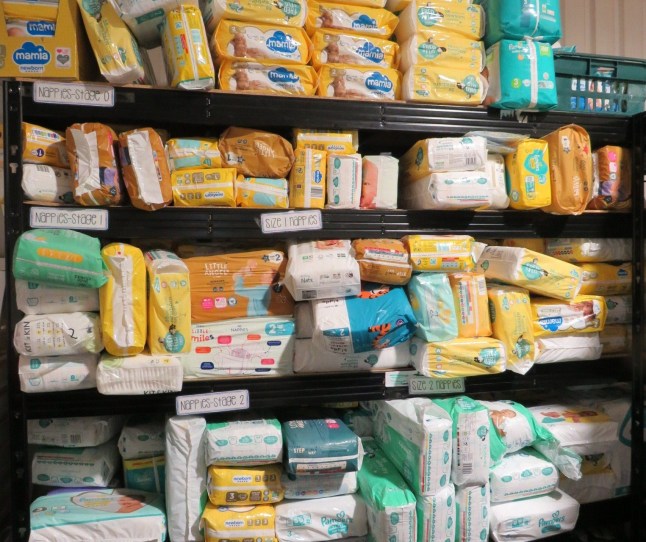
Carly heads through a set of doors to a vast warehouse where donations are stored. Shelves of nappies stretch down the room, new prams are illuminated by the winter sun and boxes of baby food are neatly labelled. There’s also drawers for more specific items, like breast pads, nappy cream and cotton wool. Carly wants to give mums as much autonomy as possible.
She continues: ‘Just because someone is in a certain section of their life, it shouldn’t mean they lose the ability to choose. I think things like, does this mum like Disney? Would she prefer frilly outfits? Will this family be outdoors a lot? The same baby clothes don’t suit everyone. We also don’t mind second hand donations, but we want good quality. I wouldn’t want to give something out which I wouldn’t feel comfortable using for my own kids.’
SIGN METRO’S FORMULA FOR CHANGE PETITION HERE
In one heartbreaking incident last year, a police officer informed Babybank staff he had been forced to arrest a woman who stole formula milk. He took a leaflet from the charity to give to her. Babyshed – which is backing Metro’s Formula for Change campaign that aims to improve access to essential items like formula – want mums to feel empowered to reach out for help.
‘Everybody is one short step away from poverty,’ Carly adds. ‘If your life circumstances have led that way, it doesn’t make you any less of a human being or a good mum.
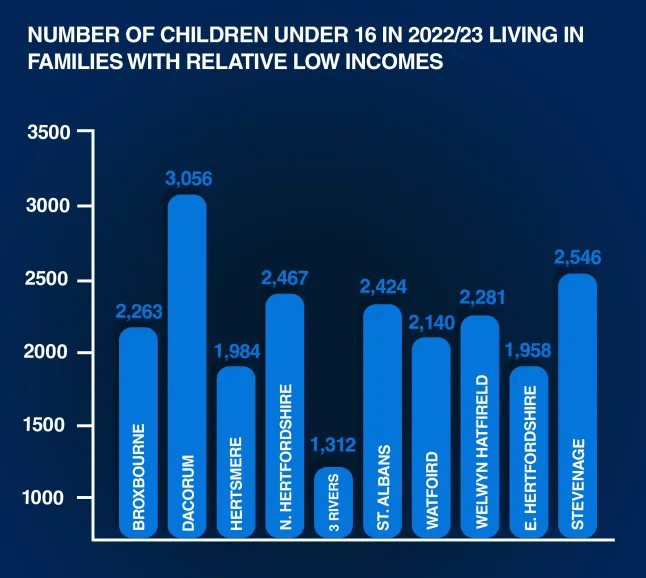
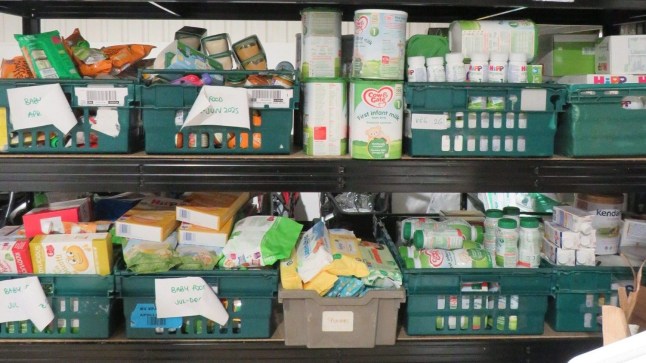
‘We want to help facilitate people to be the best parents they can be, we’re non-referral so anybody can come here. Come, see us, have a hot drink, have a chat, have a cry.
‘It might look like we’re just giving someone a pack of nappies, but it’s much more than that. It’s a vehicle for change. Some of the mums we support actually come back and give us donations once they’re back on their feet. It’s always really special to see that. If you throw a stone, it causes ripples. We want ripples of kindness to spread as far as they can.’
There are ten volunteers at Babyshed and extra support from the local community vital. Bags of sweets have been delivered from Tesco this morning while staff from GSK, a pharmaceutical company in Stevenage, recently visited the charity to paint the walls.
Babyshed has also received several vouchers from a local trampoline park, which means parents they support will be able to treat their child to a special day out they might not otherwise have been able to afford.

When Ann arrived for her first volunteering shift at her local baby bank, she could never foresee just how much of an impact she would have. The mum-of-three had previously helped with a foodbank run by Stevenage Vineyard Church, where she had been pastor.
‘Some people just want someone to talk to,’ Ann tells Metro. ‘They might not have their own support system or a mum of their own to help. I remember one woman walked in through that door and just burst into tears, it turned out she was pregnant and her husband had just left her.
‘One day she said, “I thought I could do this by myself, but I can’t. I know this is a really big ask, but would you be with me at the birth?” Of course I said yes. I cut the baby’s cord and cuddled him, it was absolutely wonderful.
‘His mum still tells me “when he hears your voice he looks for you in the room.” She doesn’t come back here a huge amount, because she’s back on her feet now with a new job and a council house.’
Support the work of Babyshed by clicking here

Call me boring if you want, but I love a good supermarket shop.
Take me to big Tesco or Sainsbury’s and I’ll be in my element looking at homeware and cute pyjamas that I don’t really need, before stocking up on my favourite snacks. Simple pleasures and all that.
It shouldn’t come as much of a surprise then, that going to Costco for the first time ever would be a big deal for me.
Standing outside the warehouse in Hayes, I was giddy with excitement. It wasn’t quite on par with the way a child feels at Disneyland for the first time, but it was up there.
The wholesale chain has pretty strict membership criteria and I’d never previously met the requirements to get in. But thanks to my husband switching jobs, that had all changed.
Finally armed with my very own Costco card I headed inside the store… and was met with utter chaos.

If you’ve never been to Costco before, it’s my duty to warn you never to go on a weekend – it’s akin to being in London when the Christmas lights are switched on, or at a UK beach in the height of summer. There were people absolutely everywhere and endless queues, both to get into the store and for the checkouts. It isn’t for the weak.
The layout of the shop itself was also rather chaotic, although this is definitely part of the experience. I never knew what I was going to find from one moment to the next – there were sports bras on a shelf next to blenders, and children’s toys near power tools.
While I was busy adapting all of this, my husband, who usually hates any form of grocery shopping, was having a blast. According to him it’s because the warehouse set up feels remarkably like being in a B&Q, thanks to the really tall shelving, as well as the drills and furniture for sale.

We quickly realised we’d never be able to do a proper grocery shop here. Everything is sold in bulk, which is ideal if you’re running a business or feeding a large family, but rather unnecessary for just the two of us, as there’d be too much waste.
That said, there were some store cupboard essentials, that would not only last for ages, but proved to be better value when bought this way.
For instance, a 600g tub of Marmite cost us £5.99 at Costco, while a 250g jar is £3 at Sainsbury’s (our nearest shop). Similarly, Twinings English Breakfast Tea Bags are £4.80 for 80 bags at Sainsbury’s, but £7.99 for 300 bags in Costco.

And it’s not just kitchen staples, there were more bargains to be found in the toiletries section, with a 96 pack of Tampax Pearl Compak costing £11.99. In comparison, a 16 pack is £3.25 at Sainsbury’s. You do the math.
For the Micellar Water girlies, this is also notably cheaper to buy at Costco, with a two-pack of 700ml Garnier bottles costing £8.49 – at Boots, one 700ml bottle is £9.99.
Not everything was necessarily good value for money though, especially products in the bakery section. A 12 pack of croissants was priced at £5.49, whereas 12 croissants in Sainsbury’s work out at £3.20.
I also audibly gasped when I saw that a six-pack of chocolate muffins was going for £7.99, but thankfully a kind stranger pointed out the fine print on the label, which said you could get two packs for £7.99. There were a few sneaky offers like this, so definitely worth keeping your eyes peeled to get the most bang for your buck.
Outside of nabbing a bargain, you can get pretty much everything and anything from Costco, including an eye test for £19.99 at the in-store opticians. Over the course of our two hour exploration of the store we also found a £73,000 diamond ring (who is buying this from Costco?!), smutty fantasy books, and salvage palettes which contained everything from clothing, to nappies and washing machines.

There were two things that really surprised me during our visit though – one positive, the other not so much. We’ll start with the negative.
I was gobsmacked by how much money we spent, despite shopping pretty carefully. Our haul was mostly practical purchases like cereal, spaghetti, cheese, vegetables, condiments, and butter.
We’d tried to limit the number of ‘rogue’ items we added in for the hell of it, although we did also take home a tub of pretzels bigger than my head, a pack of 36 Babybels and a tray of 24 of the viral cookies (sadly not worth the hype, too artificial tasting).
Our total spend came to over £100, which is more than our weekly shop, and we had much less food to show for it. I was flabbergasted, and had immediate buyer’s remorse. I pushed the trolley from the till to the food court by the exit in a bit of a daze.

After all that shopping, we’d definitely worked up an appetite so we ordered a slice of pepperoni pizza, a hot dog and soda.
Little did we know that this pit stop at the back of the store would be the highlight of the whole visit.
I was sceptical about the kind of food we’d receive from what was essentially a hatch at the back of a warehouse, especially given that it was so cheap – £1.50 for a hot dog and drink and £1.99 for a slice of pizza – but the food really blew me away.

The pepperoni pizza was better than the likes of Domino’s, Pizza Hut or Papa John’s. That’s fighting talk, I know, but I’m not the only one who thinks it. Reddit users agree, even going as far as to proclaim it the ‘best takeaway pizza in the whole of the UK’.
I enjoyed it so much, I was already chomping away before I remembered to snap a quick pic for this article, hence the giant bite mark.
My husband felt similarly about the beef hot dog, which can be ordered with or without onions, and along with a soda of your choosing for less than £2. He could have added in an ice cream as well and the price would still have put supermarket meal deals to shame.
There’s plenty more on the menu, including a chicken sandwich, jacket potato, chicken and bacon bake, gelato, plus those famous cookies, which can be bought individually – something I wish I’d known before buying 24 of them.
Everything was under £5, except for whole pizzas which cost £9.99, but in today’s climate, that’s still felt like a steal.

The only downside was that there were only a handful of seats in the food court, and like the rest of the store it was heaving with people. Being too hungry to wait for a table, we tucked in there and then slumped over the handlebar of our trolley.
The pizza was messy and theawkward standing position made for one of the most undignified eating experiences of my life, but I enjoyed the meal none the less.
Will I be going back to Costco again any time soon?
I’d go back for another slice of the pizza in a heartbeat, but I’m no longer feeling the same levels of excitement about shopping there. But that’s ok, because it’s not really meant for me.
If I’m ever planning a big dinner party it could be worth another visit, but otherwise I think I’ll be sticking with Sainsbury’s and Tesco for now.
Do you have a story to share?
Get in touch by emailing MetroLifestyleTeam@Metro.co.uk.
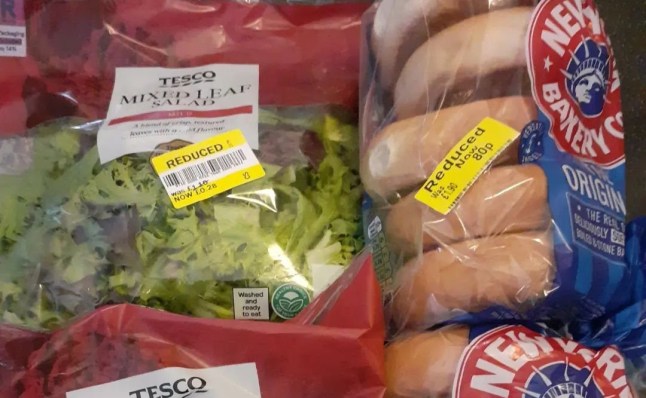
A major British supermarket will hand out food for free in a bid to reduce food waste and hit net zero goals.
Tesco plans to give away food which is about to go out of date at absolutely no cost.
The cost-slashing yellow sticker will be revolutionised and mean marked items are completely free after 9.30pm.
Potentially thousands of tonnes of food could avoid the bin and go home with customers.

The plan will first be trailed in a small number of Express stores across the country.
At present, Tesco’s yellow label system reduces the cost of food items by 90%.
The supermarket also gives unsold food to charities in order to reduce the amount of produce they have to throw away, which they will continue to do under the new scheme.
Despite these schemes, Tesco reported more than 35,000 tonnes of food waste in the UK last year.
But now staff will get priority on food which have been reduced earlier in the day and then customers will be able to take home almost out-of-date items in the run-up to closing time.
An internal memo said the plan would allow Tesco to ‘continue with our drive to reduce food waste within our own operations’, The Telegraph reports.

Tesco has pledged to be ‘carbon neutral’ by 2035 and net zero by 2050
The supermarket chain has already cut food waste by 18% between 2017 and 2023, with its long term goal being a 45% reduction.
The store has already redistributed 166 million meals through their Community Food Connection Scheme, according to their 2024 food waste report.
A spokesman for the supermarket said: ‘We are constantly looking for innovative new ways to reduce food waste.
‘This trial, in a small number of our Express stores, will allow customers to take any remaining yellow stickered items for free at the end of the day, after they have first been offered to charities and colleagues.’
Get in touch with our news team by emailing us at webnews@metro.co.uk.
For more stories like this, check our news page.